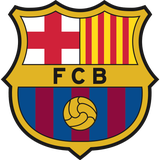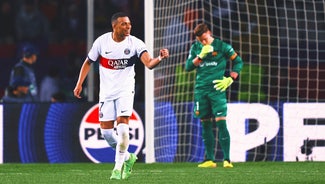
How much trouble is Neymar facing in his transfer corruption case?
FC Barcelona star forward Neymar could soon join his star teammate, Lionel Messi, as being declared a fraudster under Spanish law.
On Monday, the Spanish High Court ruled that Neymar, along with his mother, Nadine Goncalves, the Neymar family company N&N, FC Barcelona and the Brazilian club Santos FC will stand trial accused of swindling DIS Esporte, a Brazilian investment group.
Neymar and his co-defendants had petitioned Spanish courts to compel the dismissal of corruption and fraud charges, but the Spanish High Court rejected the petition and the court’s decision cannot be appealed. Absent reaching a plea deal with Spanish prosecutors, Neymar and his co-defendants will face a criminal trial at a date to-be-determined.
Case centers on how payments to Neymar are classified
In 2009, DIS and Santos—which at the time employed a 17-year-old Neymar—agreed on a so-called third-party ownership (TPO) contract. Under the contract, DIS reportedly paid €1.4 million in exchange for a 40% economic stake in any future transfer by Santos of Neymar to another club.
In 2013, Santos transferred Neymar to FC Barcelona for what appeared to be €17.1 million, netting DIS an impressive return of €6.8 million on its TPO contract and thus a €5.4 million profit.
The profit, DIS, contends should have been much more.
DIS learned that FC Barcelona also paid Neymar and his father—Neymar Da Silva Santos, who serves as Neymar’s agent—€40 million. FC Barcelona officials have offered conflicting statements about the classification of this €40 million. At times it has been described as connected to the transfer fee and at other times as a wage. How this amount is classified is of paramount importance to DIS, as DIS is entitled to a 40% cut if the €40 million is part of the transfer fee. DIS believes that Neymar, his family and the two clubs—FC Barcelona and Santos—conspired to present the €40 million as a wage when in fact the sum, or at least part of it, was connected to his transfer. Spanish prosecutors have estimated the real total transfer fee was at least €25.1 million, meaning DIS would be owed at least an additional €3.2 million.
Spanish prosecutors also contend the total transaction involving Neymar joining FC Barcelona exceeded €57.1 million and may have surpassed €83 million. This higher figure in part reflects a statement made in 2014 by FC Barcelona president Maria Bartomeu, who expressed that his team spent €86.2 million to acquire Neymar. If the €86.2 million or even a higher number is the real transfer fee paid for Neymar, DIS may be entitled to a very sizable payment. In addition, the alleged fraud would be regarded as more damning.
Assertions by DIS that it was underpaid were made more credible last year, when FC Barcelona agreed to pay the Spanish government a €5.5 million tax fine. The fine reflected underreported payments made in connection with FC Barcelona’s acquisition of Neymar. Mindful of the settlement’s impact on Neymar, FC Barcelona attributed the tax fine to an “error in tax planning” by team officials and maintained that none of the blame should be directed at Neymar or those around him. DIS and Spanish prosecutors clearly disagree with a characterization of Neymar and his family as mere innocent bystanders.

Neymar’s likely defenses
There are several types of defenses in fraud cases that might assist Neymar during a trial.
As a starting point, his attorneys will attempt to refute the factual allegations. Prosecutors insist that Neymar and his co-defendants misrepresented and/or concealed some of the payments made by FC Barcelona to secure his services. By positioning payments to lie beyond the scope of the transfer fee, the defendants are accused of retaining the 40% that was contractually owed to DIS. If such an allegation is proven true, Neymar would have engaged in textbook fraud: intentionally deceiving another party to obtain an unlawful benefit.
The most persuasive defense to such an accusation would be to disprove the existence of alleged payments. This would not be possible for the €57.1 million, which all of the parties appear to agree were contractually stipulated—though they disagree about whether these funds reflect the transfer fee or salary. Payments above €57.1 million, however, have not (yet) been proven and Neymar’s attorneys would be poised to try to debunk their existence.
As a secondary defense, Neymar could steal a page from Messi: Neymar could claim that he never knew about the payments and was never in a position to have known. In his trial, Messi argued that his father had total control over Messi’s finances and that Messi never questioned his father’s business decisions. Therefore, when tax irregularities surfaced, Messi professed innocence: only his dad would have known. This was a strategic legal argument in that a finding of criminal fraud normally requires a showing that the defendant knew that his/her acts, or omissions, were fraudulent. In other words, proving fraud requires more than proving the defendant made an innocent mistake or acted in ignorance: prosecutors must show the defendant knowingly deceived another.
Unfortunately for Messi, the court didn’t believe he could have been so unaware of his finances. The court found that as an adult, Messi must have had some awareness of how taxes work and his failure to pay the correct tax amount was inexcusable. Messi, who was given a suspended prison sentence of 21 months and fined €2.1 million, has appealed the verdict.

Perhaps Neymar, who at 25 is four years younger than Messi, would have more success in arguing he had no idea how payments work. Neymar might portray himself as totally focused on playing soccer, and stress that he places his complete trust in his parents to handle the business side of his career. Likewise, Neymar could maintain that he has no familiarity with accounting or the classification of payments—money is money, he might say—and that there is no reason why he ought to know about such things.
As an additional defense, Neymar and his co-defendants could maintain that DIS had no legal right to these payments. In that regard, the co-defendants would double-down on the portrayal of the payments as comprising wages rather than having any relationship to the transfer fee. If the payments were lawful wages, then Neymar would not have defrauded DIS. Evidence of financial records and other accounting information held by FC Barcelona, Santos FC and Neymar’s network of advisors would play a crucial role in verifying or refuting such a characterization.
If convicted, Neymar would not be ordered to prison
While Neymar faces a two-year prison sentence if convicted, he, like Messi before him, would be a “first time” offender under Spanish law and thus a beneficiary of Spanish sentencing laws. In Spain, first-time offenders who are sentenced to 24 months or less generally receive only suspended sentences. A suspended sentence means that so long as the convicted defendant satisfies the conditions of the sentence—with one major condition being not getting into more trouble with the law—that defendant will serve out the suspended sentence without actually going to prison. The fact that Neymar was found guilty of tax evasion in Brazil last year would not change his status as a first-time offender under Spanish criminal law.
If convicted of fraud, a more immediate worry for Neymar would be financial: he and his father could be fined close to €10 million. Absent a successful appeal, he would need to pay it.

The role of Neymar’s endorsement deals and their “morals clauses”
In addition to a possibility of having to pay a €10 million fine, Neymar might also be concerned about the impact of a conviction on his endorsement deals. Most endorsement deals contain what are known as “morals clauses.” Typically, these clauses empower the endorsed company to suspend or cancel an endorsement deal if the athlete encounters legal problems or generates unwanted controversy.
Endorsement contracts matter to Neymar, who has become one of the most marketable athletes on Earth. He reportedly signed a 11-year, $105 million deal with Nike as well as lucrative endorsement deals with Gillette, Red Bull and other blue chip companies. While those contracts are confidential, they almost certainly contain morals clauses.
Would Nike and other companies cut ties with Neymar if he’s convicted? Probably not, as he would be convicted of a non-violent offense and public reaction to convictions on such offenses can often be well managed by skilled public relations professionals. Plus, outside of tax and financial matters, Neymar has avoided major controversy in his career. Nonetheless Nike and other companies endorsed by Neymar might gauge public reaction before ruling out the use of morals clauses.
Rethinking TPO agreements
The role of a TPO agreement in this dispute is surely not lost on FIFA, which banned TPO agreements in 2014. For years, TPO agreements were useful for less prosperous clubs with young stars since they infused those clubs with immediate revenue and thereby made it easier to keep the young star. Santos FC, for example, was better able to keep Neymar until 2013 because of the TPO is signed with DIS. At the same time, investment groups, such as DIS, saw value in TPO agreements in that they could make significant return on investment down-the-line if the young star developed and was transferred to a higher-paying club. There were critics of TPO agreements, however, including those who worried that third parties would advocate and seek ways to encourage teams to transfer players who were subject to TPO agreements. Such moves might have created incentives that interfere with fair play. Those critics eventually persuaded FIFA.
The Neymar saga perhaps illustrates another complication with TPO agreements: the ability of the investment firm to follow the money. DIS has spent years and likely substantial expenses on attorney fees in attempting to recover what it believes it is owed from the transfer of Neymar from Santos FC to FC Barcelona. As DIS has discovered, alleged deception through accounting techniques and misclassification of payments can be difficult to rectify.
Michael McCann is SI’s legal analyst. He is also an attorney and a tenured law professor at the University of New Hampshire School of Law.






































































































































